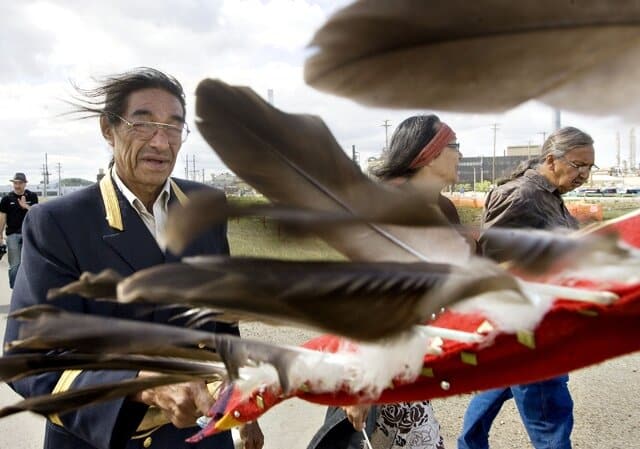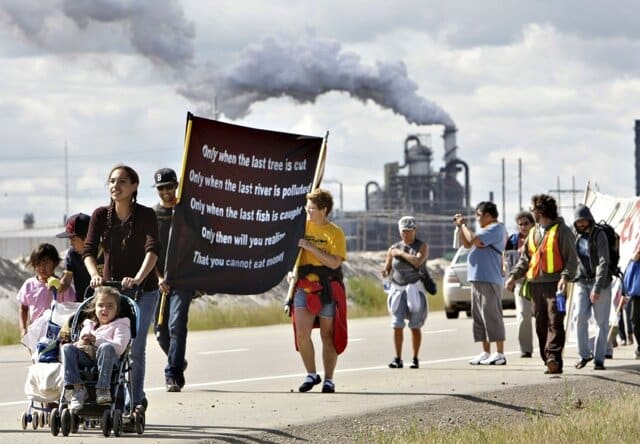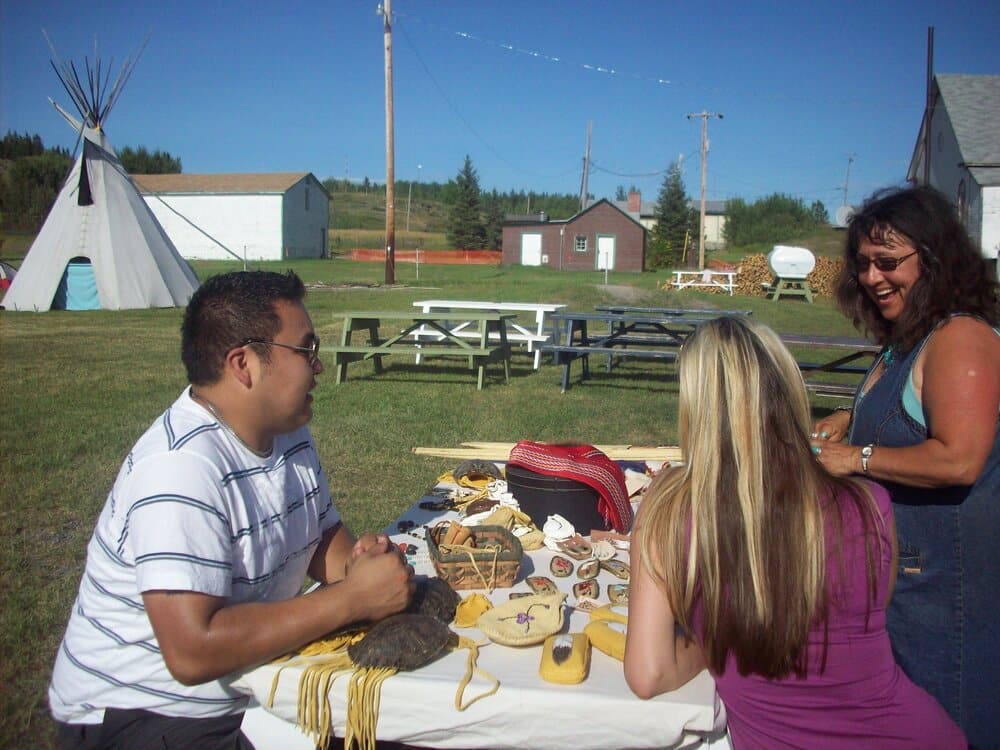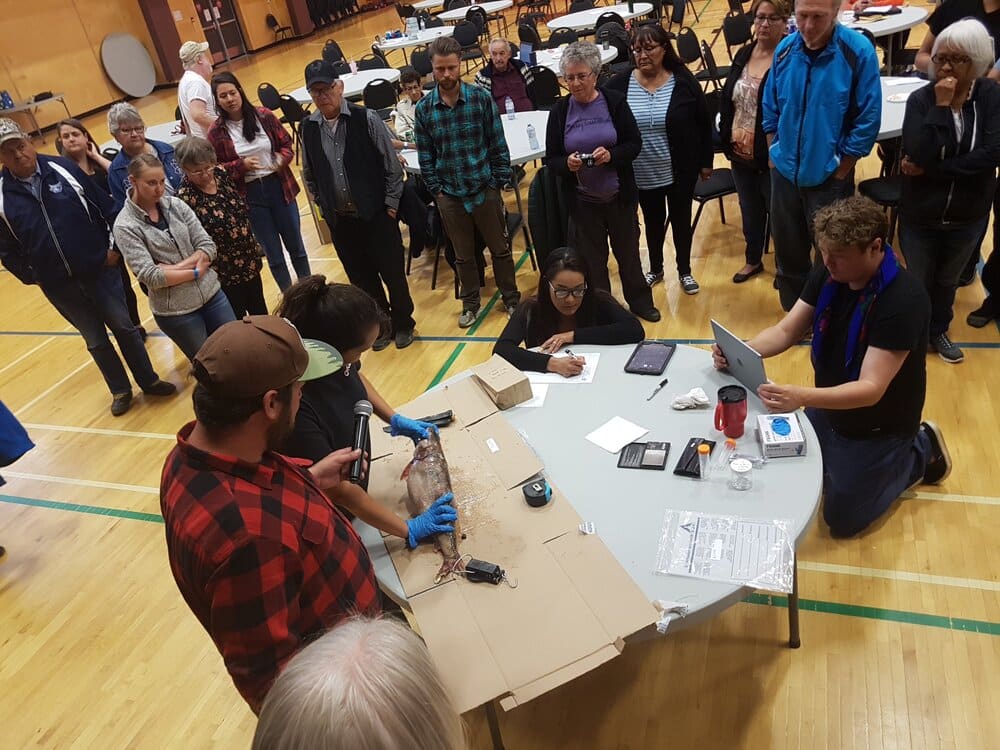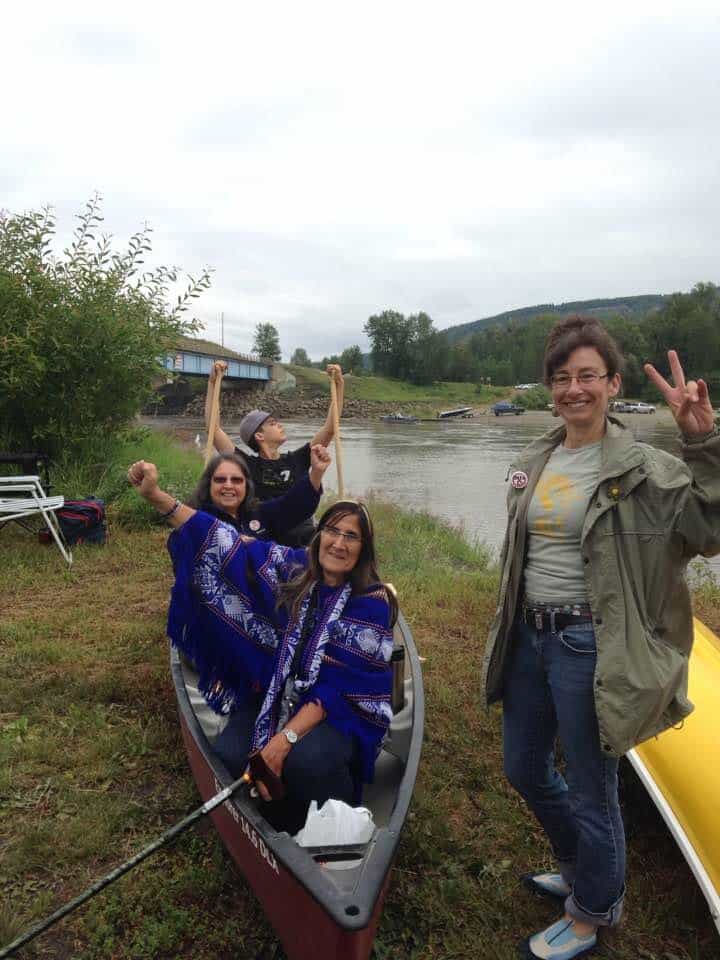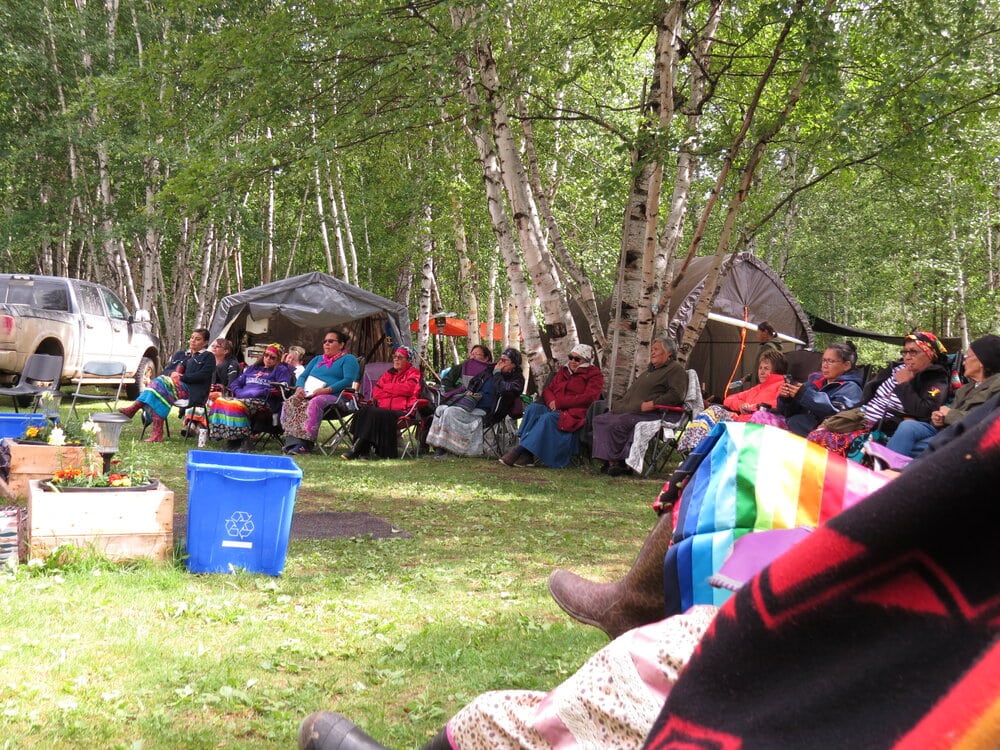About us
“Keepers of the Water’s work is really about being in our communities and living our way of life as we were intended to live,” describes Executive Director, Jesse Cardinal. “Living on the land, eating the foods that make us healthy. We need to have animals, we need to have fish, we need to have berries and medicines. Everything we do connects back to water.”
Often called, “Keepers,” the organization started as an Indigenous-led, grassroots movement in 2006 with a gathering on the shores of the Deh-cho River (colonially known as the Mackenzie River). Hosted by Dene people of the area, with guests from many Indigenous nations and communities throughout the watershed, the gathering was organized because local people were noticing the waters were changing. Deeply connected to the great river, changes to water quality and quantity was impacting local Indigenous peoples’ way of life, so the host and guests came together and made a declaration that water is sacred and committed to working together to protect it. Keepers of the Water was born to activate the declaration.
Read the Declaration.
The work grew quickly and since then, Keepers has hosted annual gatherings in different Indigenous communities throughout the Arctic watersheds, across Treaty 8 and 11 territories (also known as Northern Alberta, Northern Saskatchewan, Northern BC and Southern Northwest territories). Speaking to this massive region, Jesse explains, “We understand as Indigenous people that all water is connected so while our focus is the Arctic watershed, we work outside of that, as well. It just depends on where we get called.”
Keepers has also had to take on some of the largest industrial projects on Planet Earth. Oil, gas, and coal extraction are contaminating local watersheds, but Keepers has been there with a group of volunteers to respond. As host to the Tar Sands Healing Walk, Keepers had an international reach, and the harsh reality is: this work is far from over. Jesse explains two campaigns underway now, “We’re taking on a giant coal mine right now. If it is approved, it will devastate freshwater streams and Indigenous communities. The government of Alberta has also proposed a tailings pond release regulation that will allow dumping of tailings – they want to take toxic tailings, treat it, and dump it into the Athabasca River, but even when it’s treated it is still not safe.”
Because water is everything, and everything depends on water, Keepers’ work can look very different from one day to the next and can include food sovereignty, Indigenous knowledge and rights, and land protection. Community work is what makes Keepers who they are, and in addition to global campaigns and annual gatherings, the growing organization has established a water monitoring program, they are developing a series of traditional knowledge videos and creating resources to share with local schools.
Jesse describes the path from here, “We want to be sustainable in our work so that we can continue showing up and being a voice for the water. The animals, the plants … everything that requires clean, fresh water. We’re stronger together.”
Vision
Water is life. We embody water. It is a sacred gift. Love, honour, and respect for water are essential in continuing human existence. We honour the life-giving Waters and the Lands we are genetically connected to.
We share a vision of unity based on Elders’ guidance, ceremonies, Traditional Ecological Knowledge exchange and the natural laws that govern all life.
Keepers of the Water understand that clean fresh water is invaluable to life and the environment, for a sustainable, balanced, and just future for the survival of all of the life we share this incredible planet with.
No matter who you are, each one of us is born from the water before we ever breathe our first breath of air. It is up to each of us to keep the water for those yet to come. We must all be Keepers of the Water.

